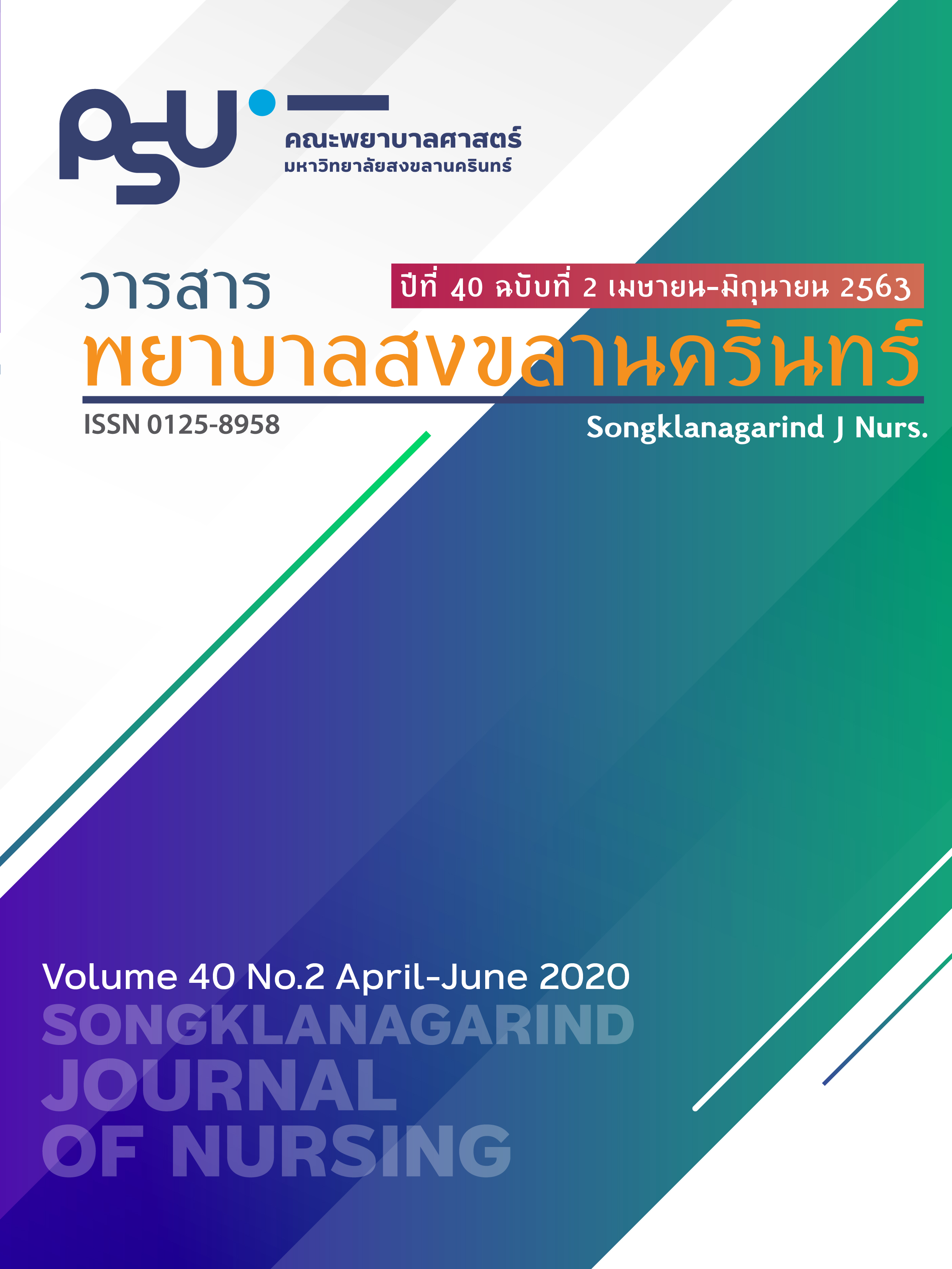Birth Spacing Behavior among Muslim Mothers: A Systematic Review
Main Article Content
Abstract
The birth spacing among Muslim mothers is still a crucial issue of family planning. Islamic doctrines do not allow contraception except for people who select a suitable contraception method that is harmless to their life. Islamic eudemonism probably causes Muslim mothers to display their birth spacing behavior in different ways if compared with Non-Muslim mothers. The research methodology in this study is a systematic literature review, whiched aims to perform a knowledge summarization regarding birth spacing behavior among Muslim mothers by using the Joanna Briggs Institution guideline for reviewing articles and selecting published journals from 2000 until 2018. Only four research papers were found that studied birth spacing behavior of Muslim mothers, published in 2002, 2004, 2015, and 2018, respectively. These research studies were qualified and used similar statistical methods, such as correlation analysis in level 4.a (3 topics) and 3.e (1 topic).
According to the systematic literature review result, the factors related to birth spacing behavior are attitude factors, knowledge factors, and perception factors. From the result, researchers can utilize the knowledge gained for developing a birth spacing program to encourage Muslim mothers to have good birth spacing behavior. In the meantime, researchers need to adopt those factors for re-study and adjust them to suit Muslim mothers in the Thailand context because the norm of Muslim mothers oversea may probably be different.
Article Details
References
Arab Universities Alumni Association Thailand. The Quran Translation in Thai Versions. Saudi Arabia: Fahd King’s Center for Printing the Qur’an; 2000. Thai.
Anlaya S. Thai Muslims family in Pattani during demographic transitions stages. Journal of Humanities and Social Sciences. 2016; 12(1):77-121. Thai.
Anlaya S, Kusol S, Kamolchanok K. Reproductive health of Thai Muslims Pattani: The differences may become marginalized. Journal of Humanities and Social Sciences.2012; 8(1): 185-201.Thai.
Rudee P, Ameporn R. Factors and consequences of repeat pregnancy among teenagers: a case study in Bangkok metropolis. J NURS SCI. 2014; 32(2): 23-31.Thai.
Methawee U, Rattana P, Umphai I, et al. Human behavior and self-development. Bangkok: Suan Dusit; 2003. Thai.
Joanna Briggs Institute. Critical appraisal tool [Internet]. Australia: Faculty of Health and Medical Sciences; 2014 [cited 2019 Jan 5]. Available from https://joannabriggs.org/ critical_appraisal_tools
Achara K, Munlika M. Using the systematic review to provide a complete summary on a research question in evidence-base practice: A 3-step method. SCNJ. 2016; 3(3): 246-59.Thai.
Kridli SA, Schott-Baer D. Jordanian Muslim women’s intention to use oral contraceptives. Res Theory Nurs Pract. 2004; 18(4): 345-56.
Bardaweel SK, Akour AA, Kilani MZ. Current knowledge attitude and patterns of oral contraceptives utilization among women in Jordan. BMC Womens Health. 2015; 15(117): 1-8. doi: 10.1186/s12905-015-0275-1
Budhwani H, Anderson J, Hearld KR. Muslim women’s use of contraception in the United States. Reprod Health. 2018; 15(1): 141-48. doi:10.1186/s12978-017-0439-6
Sriya I. Religion and the decision to use contraception in India. JSSR. 2002; 41(4): 711–22. doi: https://doi.org/10.1111/1468-5906.00156


